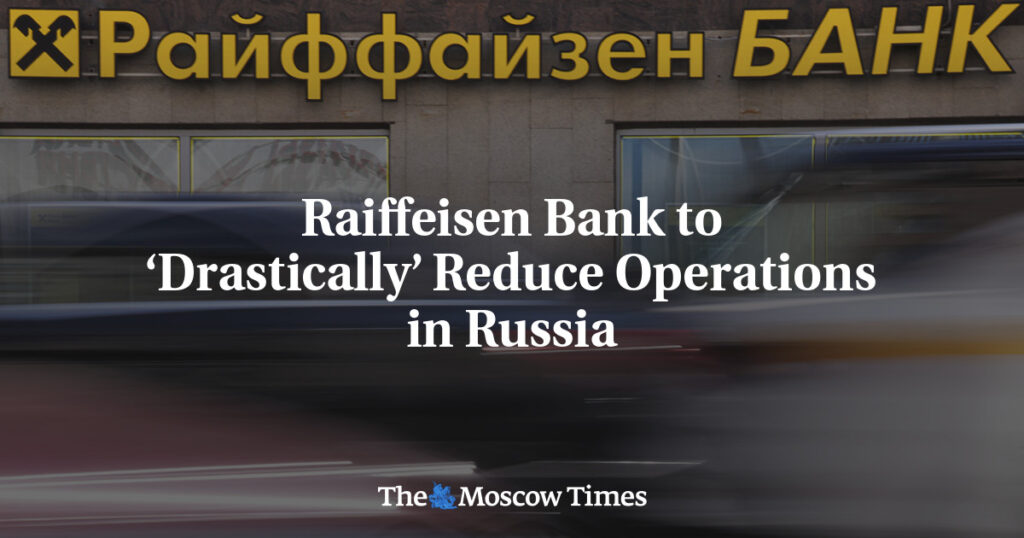Raiffeisen Bank Struggles to Exit Russian Market Amid Regulatory Challenges
Raiffeisen Bank International (RBI) has announced its continued efforts to scale back its operations in Russia, a move that has proven to be a complex and arduous process. This decision comes as the Austrian bank has faced immense pressure from international authorities to sever ties with the country. So far in 2024, almost half of RBI’s post-tax profits have been generated from its Russian division, accentuating the significant financial impact of this transition.
Financial Performance and Strategic Challenges
In its semi-annual earnings report, RBI disclosed that its Russian business generated 705 million euros ($763.6 million) out of the global unit’s consolidated profit of 1.32 billion euros ($1.4 billion) from January to June 2024. The bank has been under scrutiny following Moscow’s full-scale invasion of Ukraine, prompting regulatory bodies like the European Central Bank and the U.S. Treasury Department to urge RBI to disengage from the Russian market.
RBI has faced numerous challenges in executing this exit strategy. The bank, which had historically focused on servicing European companies and high-end international clients, encountered difficulties finding suitable local buyers for its Russian subsidiary.
Measures Taken and Future Plans
In the recent report, RBI detailed significant reductions in its Russian operations. The bank has cut its loan business in the country by 60%, significantly scaled back its clearing, settlement, and payment services, and is in the process of reducing customer deposits.
“RBI will drastically reduce Raiffeisenbank Russia’s business even further in conformity with ECB requirements. Initial consequences for customers, such as restrictions in payments, have already taken effect. Additional steps will follow,” the bank stated.
The exit process is compounded by the need for numerous approvals from multiple regulatory authorities in both Russia and Europe, and the respective central banks, making the timeframe for a complete deconsolidation uncertain.
“The process is therefore not entirely in RBI’s own hands. It is therefore very difficult to make a realistic forecast on when RBI will complete the deconsolidation of its Russian bank,” RBI Group said.
Historical Context
Raiffeisen Bank had entrenched itself as a significant player in the Russian market, becoming the largest foreign bank operating in the country. Over the years, the bank had expanded its services to include Russian domestic business clients, further complicating its withdrawal from the market.
Following Russia’s invasion of Ukraine, international sanctions and regulatory pressures have mounted against companies with operations in Russia, pushing institutions like RBI to re-evaluate their engagement in the region.
External Pressures and Ethical Considerations
Campaigners have accused RBI of not committing sincerely to its exit plan, noting that the bank’s profits surged since the beginning of the Ukraine conflict. However, the bank insists that it is taking definitive steps to comply with regulatory requirements and diminish its presence in Russia.
In a related move, Russia’s Central Bank recently raised interest rates to 18% amid rising inflation, indicating broader economic instability that adds to the challenges faced by foreign businesses operating in the country.
Conclusion
Raiffeisen Bank International’s endeavor to exit the Russian market presents a convoluted landscape of regulatory hurdles, strategic financial cuts, and ethical questions. The outcome of this process will serve as a crucial precedent for other international firms navigating similar pressures in volatile geopolitical climates. For now, RBI’s path remains fraught with uncertainties, underscoring the intricate relationship between global finance and international politics.
For more information on Raiffeisen Bank International, visit their official website.
